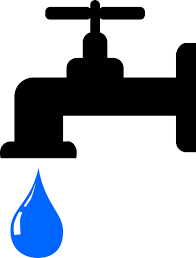The Environment Bill “will be further strengthened with an amendment that will see a duty enshrined in law to ensure water companies secure a progressive reduction in the adverse impacts of discharges from storm overflows”.
“Finally, though, the ‘fuss’ being made about the discharge of untreated sewage into our rivers is not mere nerdy interest in figures – but is fundamentally about the concern for the health of these vital ecosystems.”
.
With a vote expected tomorrow, Wednesday 27th, there has been huge pressure to strengthen the law against water pollution:
Environment Bill: Lords set to force new sewage vote in Commons | Evening Standard
Indeed, there has been huge pressure from online lobbying:
Tory MPs defend votes after uproar over sewage proposals – BBC News
Sewage vote outcry prompts Tory MPs to defend decision on social media | Pollution | The Guardian
It seems, though, that the government has blinked, with news just out:
Environment Bill: Government U-turn over water firms dumping raw sewage after fierce backlash
The change in direction comes after several Tory MPs faced a huge backlash from constituents when they voted down the amendment to the Environment Bill tabled by the Lords last week
The government has U-turned by deciding to put legal controls on water firms dumping raw sewage in the sea and rivers across the country despite recently forcing Tory MPs to vote down similar proposals.
The Department for Environment, Food and Rural Affairs (Defra) announced on Tuesday that the Environment Bill “will be further strengthened with an amendment that will see a duty enshrined in law to ensure water companies secure a progressive reduction in the adverse impacts of discharges from storm overflows”.
It comes after several Tory MPs faced a huge backlash from constituents and campaign groups after they voted down an amendment tabled by the Lords last week.
Environment Bill further strengthened to tackle storm overflows – GOV.UK
But why all the fuss, you might say?
It was made very clear during the recent heavy rains that large amounts of sewage were being discharged.
This is called ‘storm overflow’ – and here’s a map to show how bad it can get:
This map shows where the sewerage network discharges treated effluent and overflows of untreated effluent and storm water into rivers in England & Wales. Avoid entering the water immediately downstream of these discharges and avoid the overflows (brown circles), especially after it has been raining.
As pointed out in the local press recently:
Do not swim at these 14 Devon beaches after sewage discharged – Devon Live
Much of this is ‘combined sewer outflows’ – which, as SAS points out, is at the heart of the current problem of ‘unmanaged’ dumping of sewage in our rivers:

There are approximately 21,462 Combined Sewer Overflows (CSOs) and pumping stations in the UK (excluding Scotland) (Environment Agency, 2020). Their sole purpose is to discharge untreated human sewage and waste-water when the sewerage system is overloaded. CSOs act as emergency discharge valves in our sewerage system, discharging untreated sewage and wastewater when the system comes close to bursting, supposedly during periods of intense rainfall. Without CSOs, sewage could start backing up in our houses and gardens, so they are a vital part of our sewerage infrastructure. However, SAS is increasingly concerned that they are being used to regularly dispose of untreated sewage, even during times of low rainfall or none at all.
Combined Sewer Overflows • Surfers Against Sewage
The Environment Agency’s explanation – itself a reaction to reports in the press – seems wildly inadequate:
Combined Sewer Overflows Explained – Creating a better place
Especially in the light of a later report in the Guardian about the scale of sewage discharges from storm overflows into the River Wharfe:
Water in UK’s first official bathing river to be designated poor-quality | Pollution | The Guardian
And so the sorry tale of discharges seems to be repeated across the country – with a report from Lyme Regis’ Transition Town this week:
Turn Lyme Green briefing paper on the River Lim
And with water-monitoring gathering pace along the River Sid:
Testing The Water In Local Rivers & Tributaries – Sid Valley Biodiversity Group
With an excellent further report given at last night’s Sidmouth Town Council environment committee:
Environment Working Group (25 Oct 2021) – Sidmouth Town Council
Meanwhile in this part of the country, SWW has been under particular scrutiny of late:
South West Water to be quizzed on polluted rivers | Sidmouth Herald
‘Significant’ water pollution by South West Water – Vision Group for Sidmouth
Finally, though, the ‘fuss’ being made about the discharge of untreated sewage into our rivers is not mere nerdy interest in figures – but is fundamentally about the concern for the health of these vital ecosystems, as a film from the Devon Wildlife Trust from last year so beautifully showed:
New film highlights ‘fragile, threatened beauty’ of Devon’s rivers
“Our rivers are a basic building block of life for countless species, from tiny mayflies to salmon, otters and kingfishers. They provide us with beauty, places for recreation and sources of water for drinking and for growing our food. Yet, many of our rivers are in poor shape. Today just 14% of the UK’s rivers and streams are judged to be of ‘good ecological status’. Here in Devon our watercourses suffer from plastic pollution, pollution from our sewers and from our fields. This film will bring these issues to people’s attention and raise the profile of the work that we and others are doing to return rivers to a good state for people and wildlife.”
New film highlights ‘fragile, threatened beauty’ of Devon’s rivers | Devon Wildlife Trust
Devon’s rivers – beautiful, fragile and in need of protection – YouTube